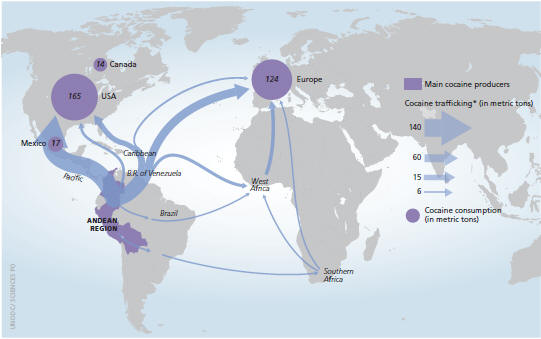Nazaroo
New member
"The Sovereignty of God. What do we mean by this expression? We mean the supremacy of God, the kingship of God, the god-hood of God. To say that God is Sovereign is to declare that God is God. To say that God is Sovereign is to declare that He is the Most High, doing according to His will in the army of Heaven, and among the inhabitants of the earth, so that none can stay His hand or say unto Him what doest Thou? (Dan. 4:35). To say that God is Sovereign is to declare that He is the Almighty, the Possessor of all power in Heaven and earth, so that none can defeat His counsels, thwart His purpose, or resist His will (Psa. 115:3). To say that God is Sovereign is to declare that He is "The Governor among the nations" (Psa. 22:28), setting up kingdoms, overthrowing empires, and determining the course of dynasties as pleaseth Him best. To say that God is Sovereign is to declare that He is the "Only Potentate, the King of kings, and Lord of lords" (1 Tim. 6:15). Such is the God of the Bible." ~A. W. Pink
Apparently you and I define "sovereignty" differently. I like Pink's version just fine.
Apparently. Pink sounds here like a blaring toot on a trumpet signifying nothing.
The underlined above appears to simply empty all meaning for "sovereignty"
and go against what a large number of Christian preachers have claimed.
If all we are asserting is that God is God, that's mere tautology.
Following with a long list of titles historically attributed to God changes nothing tangible.
Seems like a lot of hand-waving with little explanation as to how
God's will works out versus man's will.
But thanks.
Also declaring God to be "the God of the Bible" is worthless unless
we take what God teaches about Himself seriously.
For Jews God identifies Himself with the Ten Commandments,
and for Christians God's nature is revealed in the example and teachings of Jesus.
This is precisely why Islam does not preach the SAME God as the God of
the Bible, even though they openly claim that they do.
Right. A loving father doesn't use floods and wars and Babylonians and radicalized Muslims to judge sin and sinners.
Well, God DOES use floods. Wars are prophesied, not necessarily approved.
and sin is sin. God allows sinners to punish each other because
essentially you LOSE Divine Protection when you are disobedient.
The sins sinners commit against each other are still sins,
and do not necessarily reflect the correct, just, and merciful judgement
that ultimately God intends for each sinner and which will be handed out
on Judgement Day.
Thieves steal from each other stolen goods,
Murderers kill each other.
Johns sometimes abuse prostitutes.
Their actions are not just, merciful or justified by God,
but neither is God taking sides in disputes between those who reject Him.
Scriptural citation for all of that underlined please?
The story in Acts is plain enough.
Paul was knocked off his horse and blinded,
obviously AGAINST his will and purpose,
which was to arrest and execute Christians.
God stopped him by force, violating Paul's free will.
That much should be clear without needing 'proof texts'.
The problem is that while all free will is limited (we can't fly using our free will),
the will of some people is routinely limited far more than others.
For instance, when a man is imprisoned or forced to pay a fine,
his free will is restricted quite significantly,
and thats perfectly fair under the Law of God and even the Laws of secular powers.
Even criminals have codes and armies have rules.
My point was that generally, people arent' automatically under a death sentence
as if that were just.
Death may be certain, and Eternal life may not be assumed,
but neither predicament explains free will or the will of God.
Death is indeed certain until the Return of Christ,
but it is not always just or timely and is often the result of sin,
meaning innocent people have been murdered.
Murder by definition is an unjust death.
Likewise Eternal Life is a new offer through Christ,
who conquered death.
But its not automatically available to everybody,
and its not unconditional.
It requires a New Covenant and repentance.
While you may not deserve death under the law,
you will not be likely to avoid it due to the previous sins of others
and the sinful state of the earth and creation.
While you may deserve Eternal Life,
having never committed a sin worthy of death or chains,
Eternal Life is still conditional upon accepting Jesus and receiving Him
and the Holy Spirit and that means accepting and obeying His teaching and commands.
I'm pretty sure all of the latter fall under "the souls that sins shall die."
And I'm pretty sure that when Christian preachers quote Ezekiel to support
the doctrine that all sin leads to a death sentence, they are completely
misrepresenting the teaching intended in Ezekiel chapter 18.
Many sins DON'T lead to death, for instance stealing.
Stealing a sheep requires paying back 4 sheep, under the Law of God.
Not a death sentence.
As popular as this out of context quote is, you have bungled it.
What God asserts through Ezekiel in these paragraphs is that
the person who commits the mortal sin described (i.e, murder)
is the one who should be or will be punished for it. That is God's will.
No substitutions and no stand-ins for sinners.
Those who push the substitutionary death of Jesus as God's will
have failed to understand this passage.
Jesus may be Redeemer, and Saviour, but he's not a substitutionary sacrifice.
God doesn't allow substitutions for sinners.
If you doubt that, ask the two men crucified beside Jesus
if they were able to escape their punishment, even though
at least one of them was saved in the next life.












